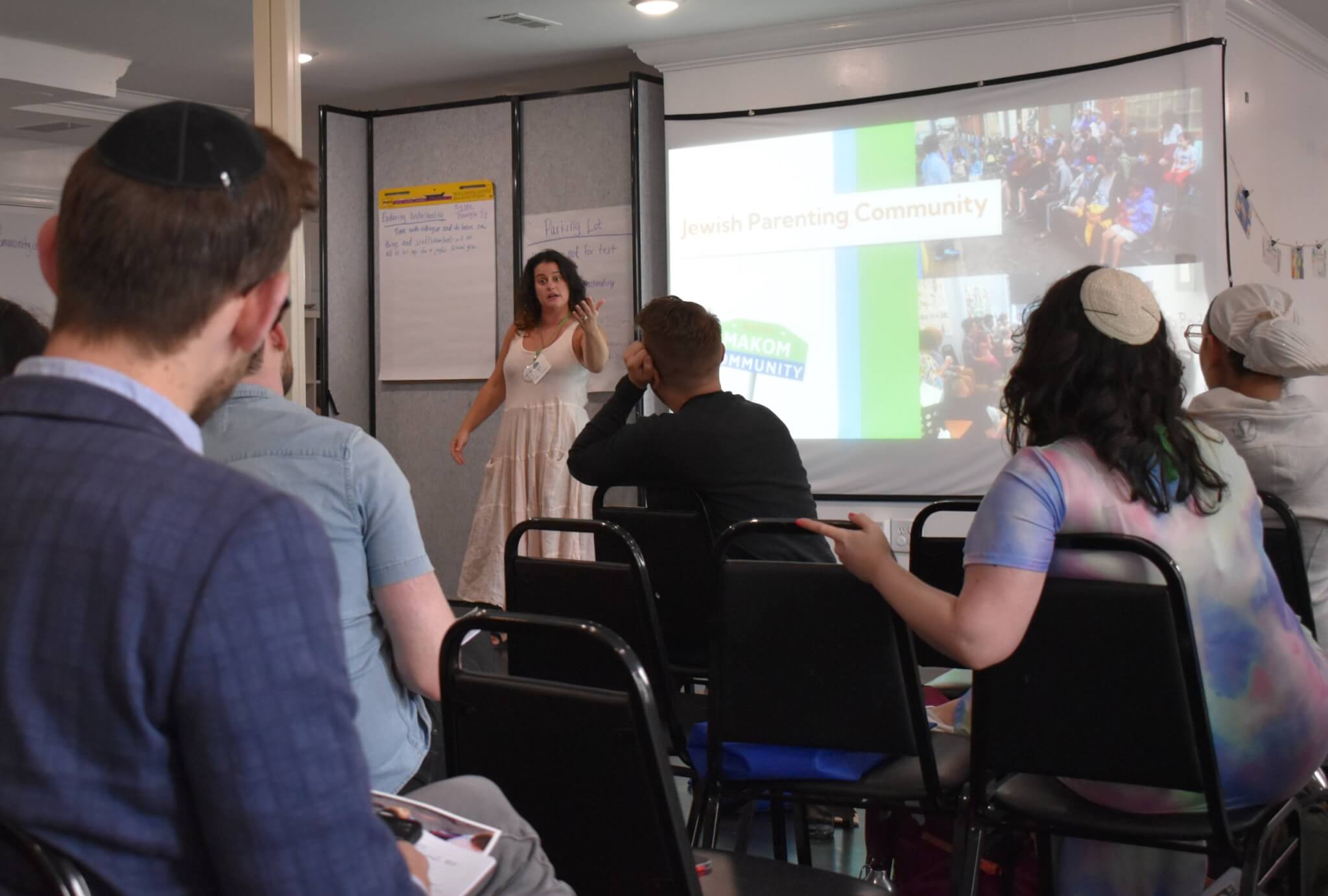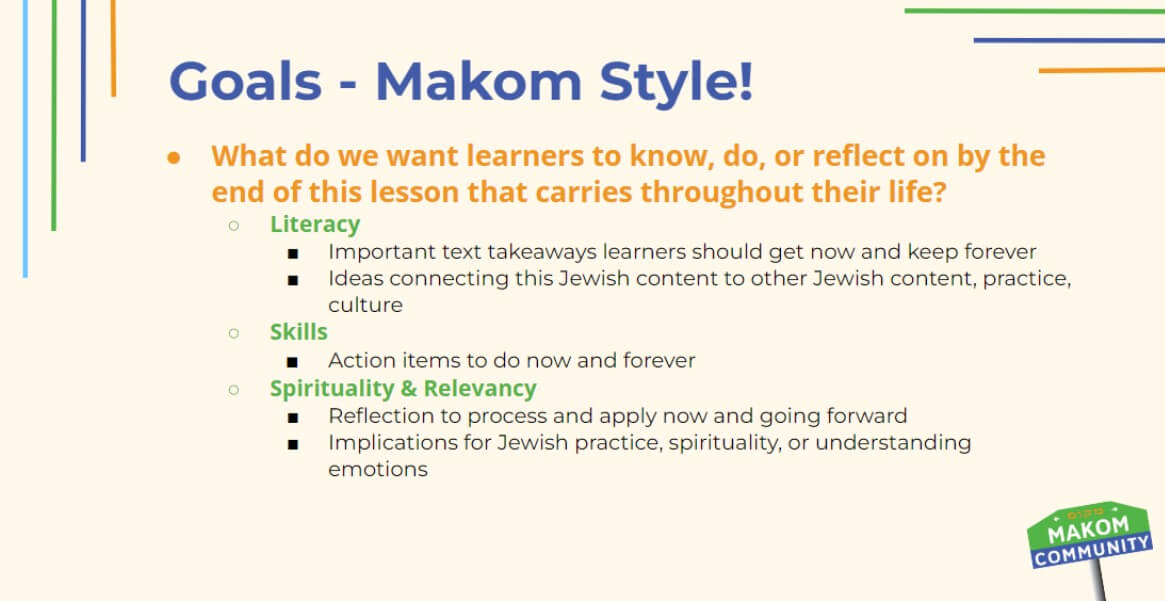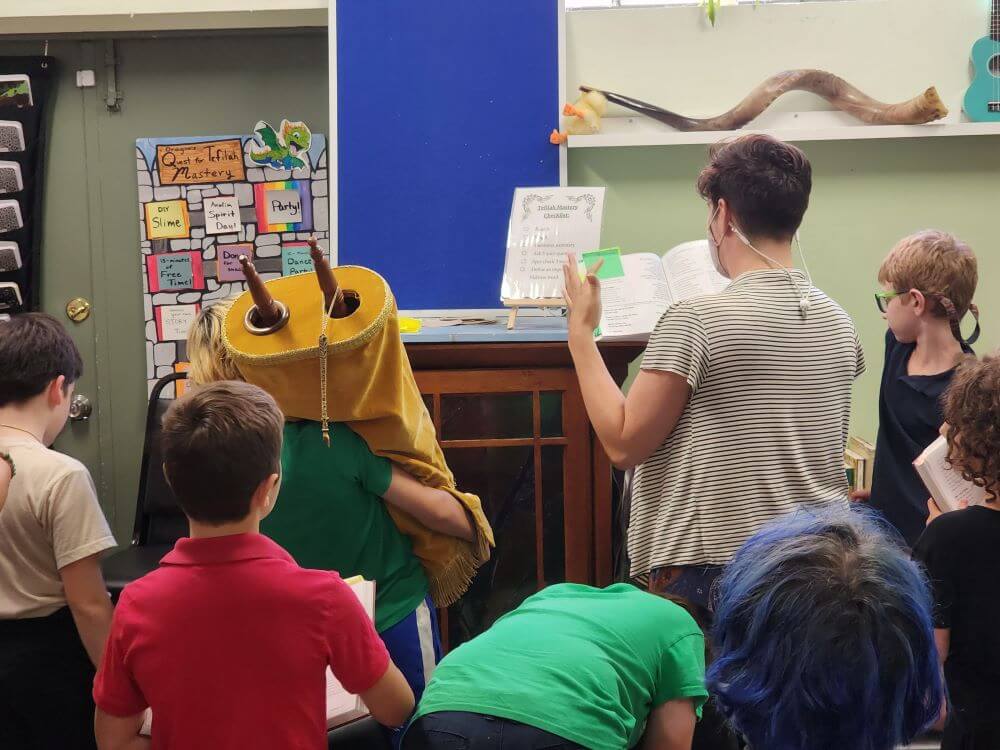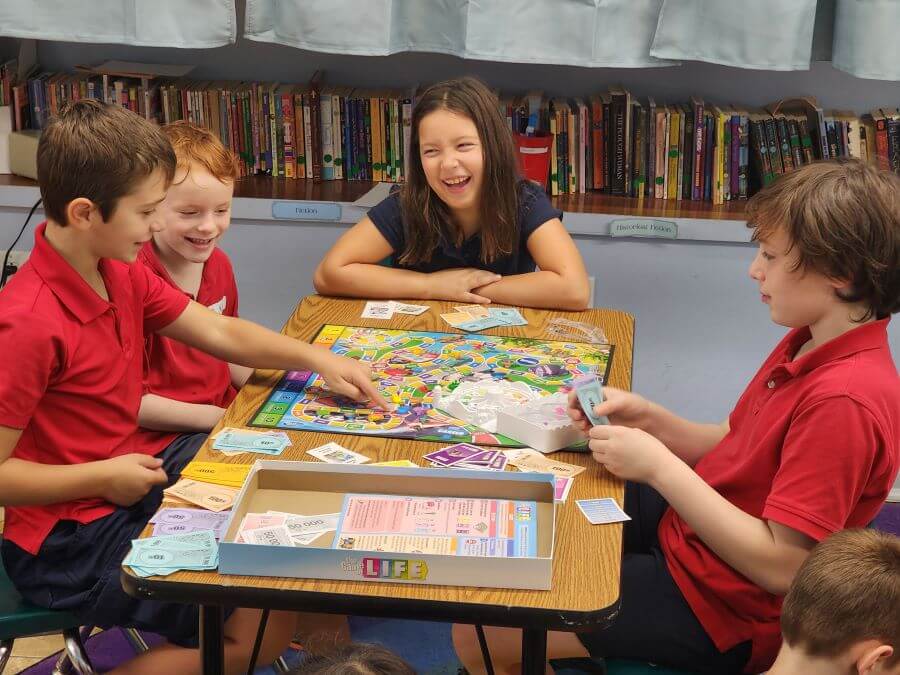
Remember back in June, when you had a document open asking yourself, what should each grade level learn? We are here to help with that daunting task!
As part of Makom Making, where we share the best educational and operational lessons from our Makom Community Lab School, we work with Jewish educators across the country. We often hear that curriculum is a major roadblock. Either the curriculum they are using is not a good fit for their community, their educators, and/or their learners’ needs. Alternatively, they struggle to find a curriculum they connect with and ask Makom Community for support. At Makom Community, our first question in response is “What Jewish wisdom do you want your learners and their families to leave with when they graduate from your community’s learning experience?” (This is a foundation of education called Reverse Design).
When we start with this question, we are first, making the daunting task of creating a WHOLE curriculum bite size into manageable steps. Secondly, beginning to embrace the mindset that our learners in part-time Jewish education can’t learn everything! To help facilitate this change to a deeper and a more focused content-based curriculum, the team needs to adopt new approaches. The educational leadership of the community needs to deeply listen to the desires of their community and the educator team needs to embrace a new perspective on lesson planning. That new perspective is one where educators start with a healthy list of goals underlying the lesson. The desired outcome is not a project. A project is a tool we use to help learners understand the goals.
At Makom Community we approach lifelong goal setting in three buckets:

These three buckets of goals ground both the educator and their learners in three specific areas. Literacy goals help learners recognize where else we see this in Jewish wisdom (in Jewish practice or text). Talking about the Noach story, where else do we see water? Moshe hitting the rock, a mikveh, or cleaning for Passover! Suddenly,we are making connections across the Jewish calendar and time, and across the weekly Torah schedule. Though we are doing more focused content, we are suddenly cracking open all the seasonal and Jewish time constraints! Literacy goals are also where Jewish educators can have their own experience shine through. In this way, Jewish educators act as role models for loving and safe Jewish adults in our learners’ lives. Back to the water example, some educators may feel more comfortable making the connection to the mikveh, while others connect to another parsha of Torah, or to a holiday ritual! This allows the educator to take the learners where they feel comfortable and/or, after knowing their learners, where they know they will be most engaged!
Skills goals layers learners towards the spiritual and relevancy goals. As “Jewish Values” become a core of part-time and experiential Jewish education, if we do not anchor those values in the plethora of Jewish text, rituals, stories, music and art that exists in the Jewish canon, we are doing a disservice to our learners and their families. Values need to be grounded in actions (skills goals), to help our learners take Jewish wisdom and apply it, setting them up to understand the spirituality goals in action!

With limited learning time across our part-time Jewish education spaces, we need to first accept that we need realistic goals for the knowledge and application of non-googleable content that we are teaching. At Makom Community, we have four 8 week units a year. Each unit is grounded in a Jewish text that we spend those weeks exploring through different learning modalities, while our kiddos, their families, and our educators are immersed in our intentional Jewish community. Choosing texts or other learning topics is editorializing! Each community’s priorities around what specific content they choose grows out of their vision for what they aspire for their learners to know, feel, and be able to do by each age and stage. There are so many powerful, meaningful ways to engage with Judaism, and we are not here to prescribe that one singular curriculum could fit all spaces where Jewish learning comes to life for children and families. At Makom Community we support communities to adopt these tools and implement them to create a deep and meaningful educational community!

